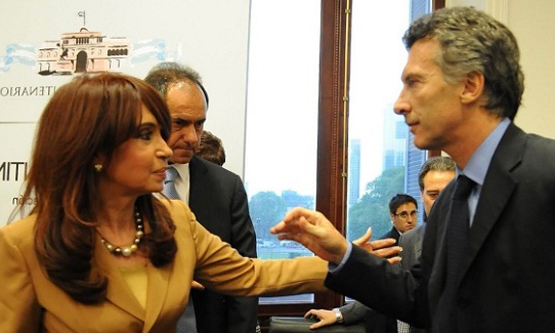
On 22 November Mauricio Macri, mayor of Buenos Aires, won the presidential election under the ‘Cambiemos’ (‘Let’s Change’) coalition party flag, with 51.4% of votes. Macri narrowly defeated Daniel Scioli, the ‘Peronist’ Justicialista Party (in its ‘Front for Victory’ alliance) candidate, who got 48.6% of the votes, in the first run off in Argentine political history. Macri is only the fourth non-Peronist president elected over the past half century, and is outvoted in the Lower House with 91 of the 257 seats. He takes power on 10 December, promising a return to neoliberalism.
Scioli was outgoing President Cristina Fernandez de Kirchner’s chosen replacement and Macri’s surprising victory followed Scioli’s better performance in the first round. The result plunges the country into a period of uncertainty dressed in business optimism. Macri is from a wealthy construction company family, who promised to fight crime, and reduce inflation, around 20%, and youth unemployment, over 20%, by bowing to the conditions set by international capital markets. Sergio Massa’s United for a New Alternative movement, with 21.39% of the votes, has promised to support Macri. Scioli’sFront for Victory party also lacks a majority in the lower chamber and needs to seek alliances if it is to block Macri.
International banks supported Macri: JPMorgan lowered Argentina’s risk index by 16% on the day following the election, to levels not seen since 2011, so rewarding bond holders, and Moody’s raised its ‘outlook’ for investors. To curry favour with the US, Macri immediately demanded that Venezuela be suspended from the Mercosur trading bloc for ‘human rights abuses’, a shameful repetition of criminal slanders directed against the Maduro government, confirming the standards to be expected from Macri’s social class.
Alvaro Michaels




